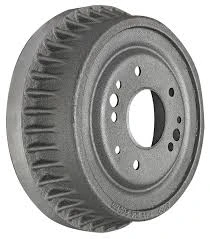
-
 Afrikaans
Afrikaans -
 Albanian
Albanian -
 Amharic
Amharic -
 Arabic
Arabic -
 Armenian
Armenian -
 Azerbaijani
Azerbaijani -
 Basque
Basque -
 Belarusian
Belarusian -
 Bengali
Bengali -
 Bosnian
Bosnian -
 Bulgarian
Bulgarian -
 Catalan
Catalan -
 Cebuano
Cebuano -
 Corsican
Corsican -
 Croatian
Croatian -
 Czech
Czech -
 Danish
Danish -
 Dutch
Dutch -
 English
English -
 Esperanto
Esperanto -
 Estonian
Estonian -
 Finnish
Finnish -
 French
French -
 Frisian
Frisian -
 Galician
Galician -
 Georgian
Georgian -
 German
German -
 Greek
Greek -
 Gujarati
Gujarati -
 Haitian Creole
Haitian Creole -
 hausa
hausa -
 hawaiian
hawaiian -
 Hebrew
Hebrew -
 Hindi
Hindi -
 Miao
Miao -
 Hungarian
Hungarian -
 Icelandic
Icelandic -
 igbo
igbo -
 Indonesian
Indonesian -
 irish
irish -
 Italian
Italian -
 Japanese
Japanese -
 Javanese
Javanese -
 Kannada
Kannada -
 kazakh
kazakh -
 Khmer
Khmer -
 Rwandese
Rwandese -
 Korean
Korean -
 Kurdish
Kurdish -
 Kyrgyz
Kyrgyz -
 Lao
Lao -
 Latin
Latin -
 Latvian
Latvian -
 Lithuanian
Lithuanian -
 Luxembourgish
Luxembourgish -
 Macedonian
Macedonian -
 Malgashi
Malgashi -
 Malay
Malay -
 Malayalam
Malayalam -
 Maltese
Maltese -
 Maori
Maori -
 Marathi
Marathi -
 Mongolian
Mongolian -
 Myanmar
Myanmar -
 Nepali
Nepali -
 Norwegian
Norwegian -
 Norwegian
Norwegian -
 Occitan
Occitan -
 Pashto
Pashto -
 Persian
Persian -
 Polish
Polish -
 Portuguese
Portuguese -
 Punjabi
Punjabi -
 Romanian
Romanian -
 Russian
Russian -
 Samoan
Samoan -
 Scottish Gaelic
Scottish Gaelic -
 Serbian
Serbian -
 Sesotho
Sesotho -
 Shona
Shona -
 Sindhi
Sindhi -
 Sinhala
Sinhala -
 Slovak
Slovak -
 Slovenian
Slovenian -
 Somali
Somali -
 Spanish
Spanish -
 Sundanese
Sundanese -
 Swahili
Swahili -
 Swedish
Swedish -
 Tagalog
Tagalog -
 Tajik
Tajik -
 Tamil
Tamil -
 Tatar
Tatar -
 Telugu
Telugu -
 Thai
Thai -
 Turkish
Turkish -
 Turkmen
Turkmen -
 Ukrainian
Ukrainian -
 Urdu
Urdu -
 Uighur
Uighur -
 Uzbek
Uzbek -
 Vietnamese
Vietnamese -
 Welsh
Welsh -
 Bantu
Bantu -
 Yiddish
Yiddish -
 Yoruba
Yoruba -
 Zulu
Zulu
When to Replace Brake Drums
When to Replace Brake Drum A Comprehensive Guide
Brake drums are crucial components of a vehicle's braking system, especially in vehicles equipped with drum brakes. They work in conjunction with brake shoes to create friction that slows down or stops the vehicle. Over time, brake drums can wear out, leading to decreased performance and safety risks. Knowing when to replace your brake drums can save you from costly repairs and ensure your vehicle operates smoothly.
Signs of Wear
One of the most obvious signs that your brake drums may need replacement is a loud or grinding noise when you apply the brakes. This noise usually indicates that the brake shoes have worn down to the point that they are making contact with the drum itself. If you hear this sound, it's essential to have your brakes inspected as soon as possible.
Another indication is a pulsating sensation in the brake pedal when engaged. This often suggests that the drum has become warped due to heat buildup over time. Warped drums can lead to inconsistent braking, making it vital to replace them before the problem escalates. Additionally, if you experience vibrations in the steering wheel or a pulling sensation to one side when braking, these can also be signs of drum issues.
Mileage Considerations
when to replace brake drum

While the lifespan of brake drums can vary based on driving conditions and habits, it is generally advisable to have them inspected every 30,000 to 60,000 miles. If you frequently drive in hilly or mountainous terrain, or if you often carry heavy loads, consider a more frequent inspection. Regular maintenance can extend the life of your brake drums and ensure optimal safety.
Professional Inspection
If you notice any of the signs mentioned above or if you are approaching the recommended mileage for an inspection, it’s wise to consult a professional mechanic. They can assess the condition of your brake drums and determine whether they need to be resurfaced or replaced entirely. Resurfacing can be a cost-effective solution if the drum is only slightly worn, but if the damage is significant, replacement is necessary.
Conclusion
In summary, maintaining your brake drums is essential for safe vehicle operation. Regular inspections, being attentive to warning signs, and understanding when to replace them can prevent more severe issues down the road. By staying proactive, you ensure that your brakes remain effective, giving you peace of mind on the road. Remember, when it comes to brake safety, it’s always better to err on the side of caution.
-
What Are Drum BrakesNewsJul.07,2025
-
Understanding Brake Drum MaterialNewsJul.07,2025
-
Semi-Trailer Brake Drum: A Key Component for Extreme Loads and Long-Distance TransportNewsJul.07,2025
-
Drum Brake Pads for SaleNewsJul.07,2025
-
Brake Drums for SaleNewsJul.07,2025
-
Brake Drum ManufacturerNewsJul.07,2025
-
Aluminum Brake Drums: The Future of High-Performance CarsNewsJul.07,2025
